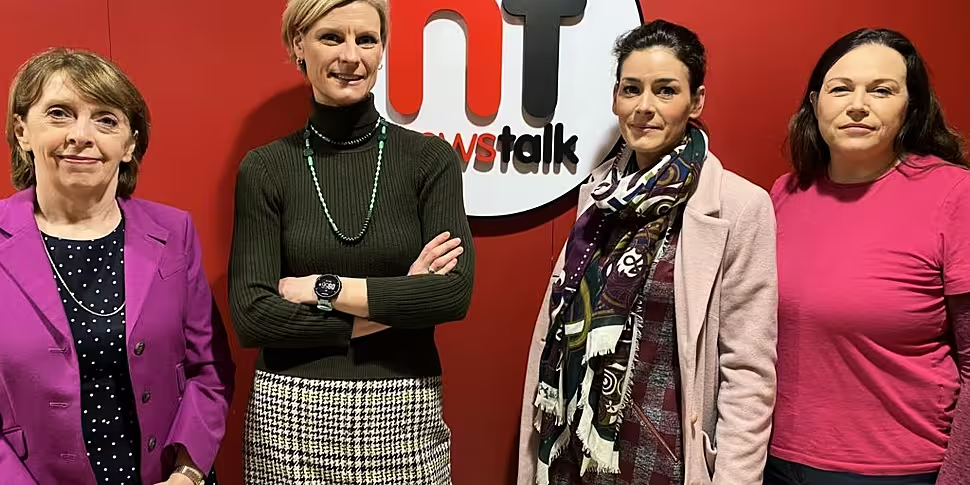The Social Democrats and the Green Party have refused to rule out going into any coalition government with Sinn Féin.
Roisin Shortall and Pippa Hackett were speaking as part of a women's panel on The Pat Kenny Show.
In terms of potential coalitions, Fianna Fáil TD Lisa Chambers suggested: "Our party position remains utterly unchanged, it has never moved - we will not be coalescing with Sinn Féin - and Michael Martin on the debate last night reiterated that point".
Social Democrats co-leader Roisin Shortall said it was "far too early" to talk about any potential left grouping with Sinn Féin.
"I spoke to you last week Pat about the potential for some other grouping there - and certainly if you look at the polls from recent days you have a block in Fine Gael, you've a block in Fianna Fáil and the other block, the kind of centre-left block, is actually bigger than either of those.
"I'd like to see that happening soon, that you would have some kind of platform there, progressive platform there".
"Things like that are up for discussions after an election, we're not going to go there at this point".
Meanwhile Fine Gael's Kate O'Connell said: "I do not understand how we could ever coalesce with Sinn Féin because there is such difference in our policies, I can't see how we could agree to form a coalition.
"But that said, there is a significant vote there for Sinn Féin at the minute and perhaps that will continue - but the job of government is to represent all people: those who voted for them and those who didn't vote for them."
"That said: Fine Gael members have absolutely no time for Fine Gael going into any sort of coalition with Sinn Féin".
And Green Party Senator Pippa Hackett said: "We're going to wait and see, we're going to read the party manifestos.
"Clearly for the Green Party strong environmental policies from any party is going to be important for us if we're going to consider going into any sort of government formation.
"And that'll filter through all the policies - it's not just green-washing, which we've seen plenty of over the last five or 10 years.
"The governments can talk the talk, but are they walking the walk - I don't think so".
Women in power: a debate on gender quotas, health policies and more. Coming up next on @PatKennyNT #VoiceOfTheVoter #GE2020 pic.twitter.com/avI4ANTXvV
— Newstalk (@NewstalkFM) January 23, 2020
Sinn Féin's health spokesperson Louise O'Reilly said: "People are going to be voting on the basis of policies that parties have - they're also going to be voting on the basis of engagement.
"That's the great thing about an election: it gives you the opportunity to interrogate your policies [and] to have those conversations on the doorsteps".
She also suggested there is "an appeal to younger voters from Sinn Féin".
But she denied the party was trying to airbrush its history: "We're trying to fight this election on the basis of our policies".
Women candidates
Meanwhile, a group says election nomination figure show a missed opportunity for women in the next Dáil.
Women For Election said all parties had been urged to aim for at least 40% women candidates on the ticket.
However it said most of them "fell well short of the mark".
Nominations closed at the close of business on Wednesday.
CEO of Women For Election, Ciairín de Buis, said some parties fared better than others.
"Fine Gael just scraped over the quota at (30.5%). Fianna Fáil (31%), Labour (32%) and Sinn Féin (33%) didn't do much better.
"The numbers of women on the ticket for People Before Profit (38%), the Green Party (41%), and the Social Democrats (57%) show there are plenty of women who are politically engaged, active and ready to run out there, right now.
"You'd have to wonder why the other parties cannot recognise this fact."
"It's shocking that there are more men named Seán than women on the ticket in Cork East, and as many Michaels as women running in Cork North West."
"While it's very welcome news that there is a woman running in every constituency, for the first time ever, we need to be more ambitious than that.
"Women aren't a minority group, we are more than half the population - and political parties need to wake up to the fact that we need political leadership which represents us all."









